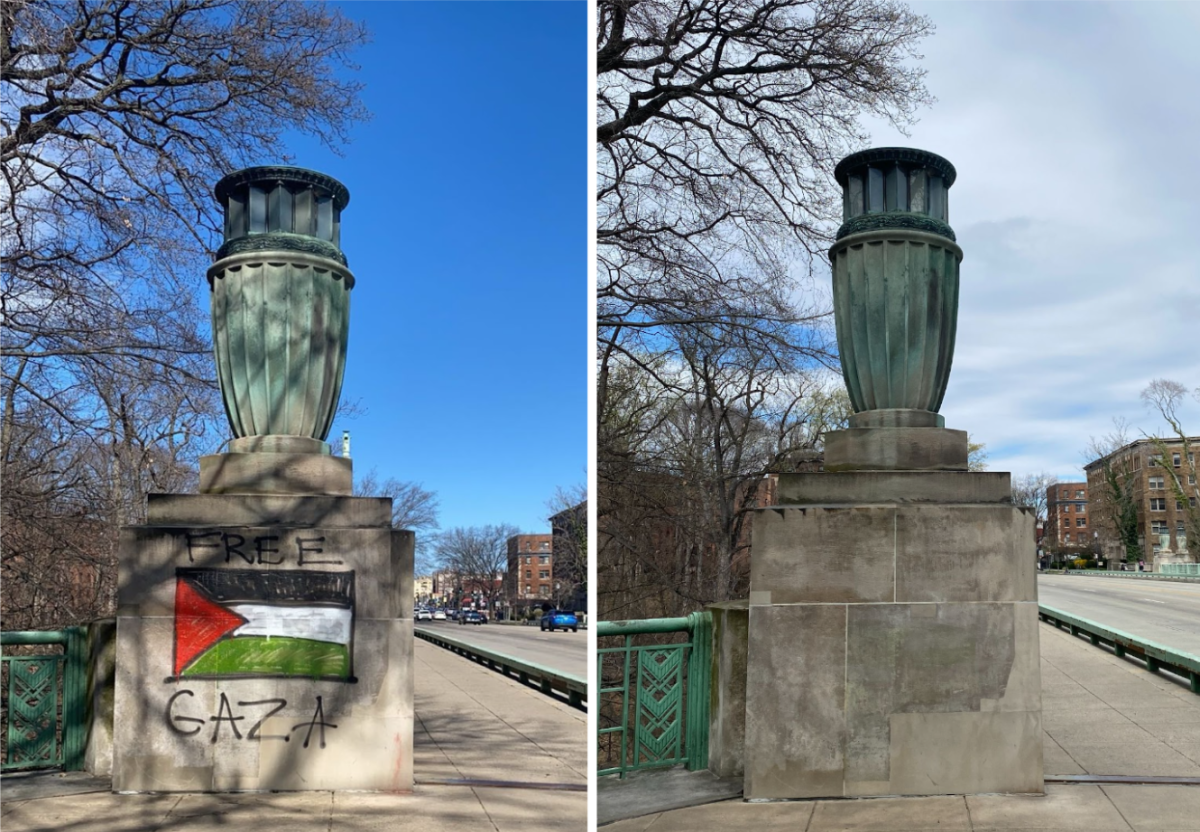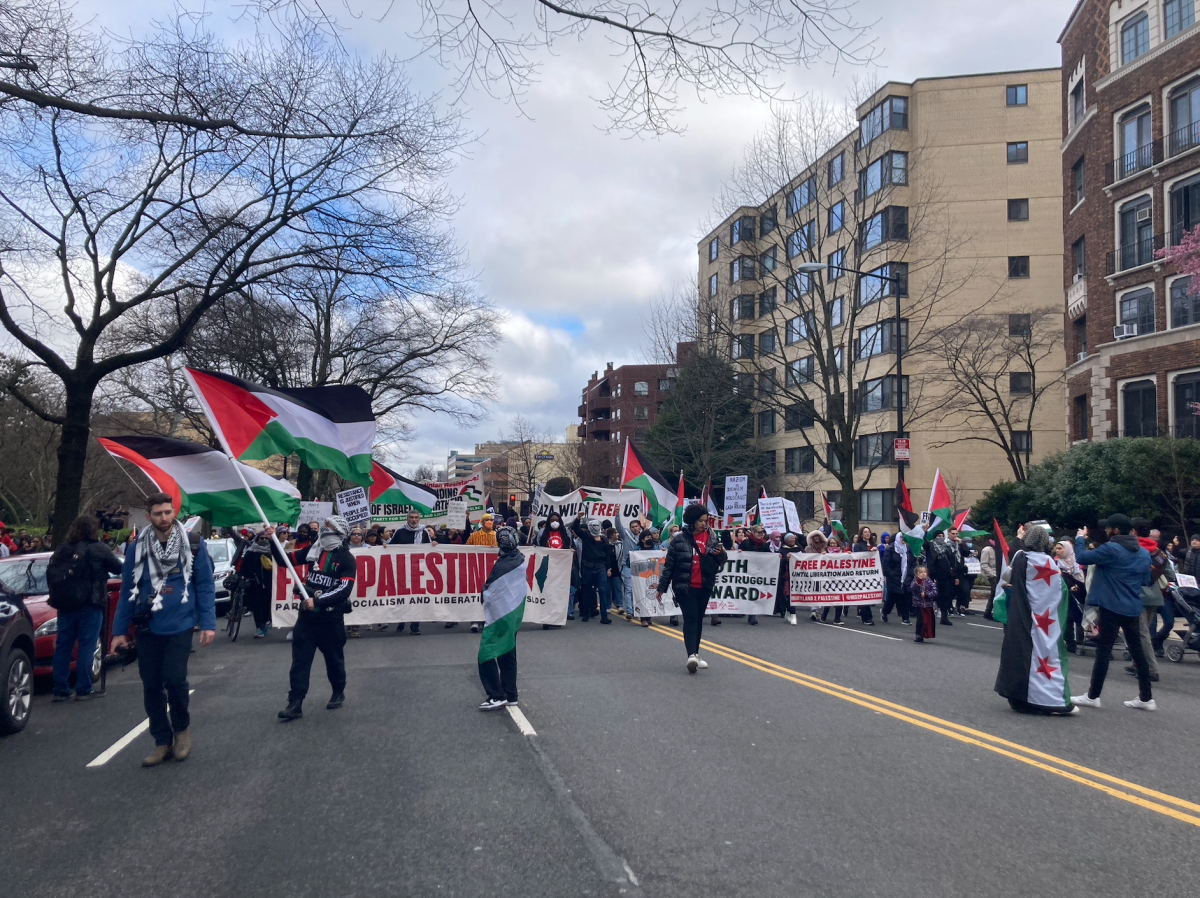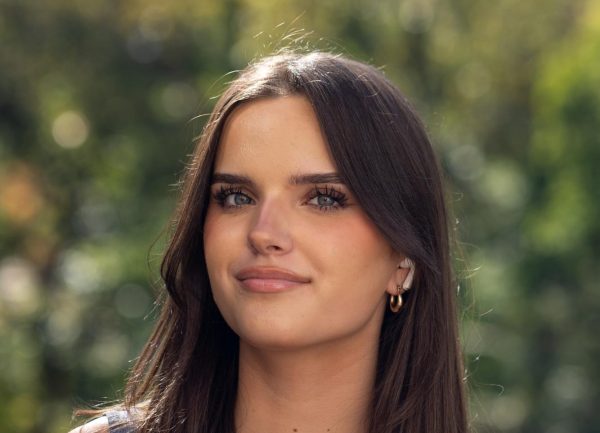WIS students at the Tregaron campus are all members of Generation Z, and with the upcoming 2024 Presidential Election, Gen Z’s votes are being chased like never before. By targeting social media platforms and following pop-culture tre nds, Vice President Kamala Harris and former President Donald Trump are incorporating strategies to sway young voters in their favor.
In July 2024, President Joe Biden officially withdrew from the presidential race, leaving The Democratic Party with a nominee slot to fill. Harris quickly stepped up to the plate to become the new Democratic Party presidential nominee. Her campaign has been focused on mobilizing young voters, who will play a crucial role in her push to win the upcoming election.
While traditional political campaigns may sometimes seem disconnected from younger voters, Harris’s team has developed a creative and on-trend campaign strategy. They have centered their approach around engaging with the social media-driven world that Gen Z is so familiar with.
One of the most notable aspects of Harris’s campaign has been her embrace of the “Brat Summer” trend, a viral phenomenon that has unexpectedly turned into a political asset.
The album “Brat” was released by the singer-songwriter Charli XCX on June 7, and became a hit overnight. With her catchy lyrics, mesmerizing beats, and bright neon green theme, Gen Z was captivated right away.
“Brat Summer” has been used by Harris’s campaign to build excitement and relatability. By using this popular trend as a vehicle for her campaign, she gained popularity almost immediately.
Another aspect of social media that Harris has taken advantage of is TikTok. The TikTok account “Kamala HQ”, although not run by Harris and her campaign, has become very popular over the course of her campaign, garnering around 2 million followers. The account posts everything from behind-the-scenes campaign footage to “Brat Summer” dance challenges. Meanwhile on X (formerly Twitter), “Kamala HQ” interacts with Gen Z through quick-witted replies and live updates on the campaign. Both of these accounts have created spaces for fun, online interactions with the campaign, as well as a safe space for speaking on issues that Harris has been passionate about.
Polls have shown that this strategy is paying off, with Harris gaining significant popularity among voters aged 18-29, outperforming Biden’s numbers in this demographic by a considerable margin. The trend has increased her visibility, which is especially important after such a short-notice campaign announcement.
Harris’s campaign rallies have also played a critical role in her outreach to younger voters, mixing politics with the energy and flair of pop culture. In a recent rally in Atlanta, hip-hop stars Megan Thee Stallion and Quavo joined Harris on stage to show their support. Stallion, dressed in a striking blue pantsuit, delivered a high-energy performance that included her songs “Body” and “Savage.”
“Make some noise for Ms. Harris, our future president…” Stallion said to the crowd, introducing the slogan “Hotties for Harris.”
The Atlanta rapper, Quavo, took a different approach. The rapper has become a prominent advocate for gun violence prevention following the tragic death of his nephew and fellow rapper, Takeoff. Rather than performing, the rapper praised Harris in a heartfelt speech about her commitment to addressing gun violence in America.
“One of the issues I care about is resolving the gun violence issue,” Quavo said. “You can’t understand the struggle of gun violence if you’re not in the field or in the heart of it. One thing I learned about working with Vice President Harris is she’s always standing on business.”
Harris’s use of celebrity support and cultural references is more than just a campaign tactic: it bridges the gap between politics and the everyday lives of young people. This approach has allowed her to connect with a demographic that often feels disconnected from politics.
In the future, Harris’s campaign plans to visit college campuses, increase digital ads, and boost youth organizations, anticipating that Gen Z’s enthusiasm and activism will be crucial for winning in 2024.
It’s not certain whether this strategy will lead to more votes, but it is clear that Harris is set on changing how to connect with and win over America’s youngest voters.
As the 2024 U.S. presidential race becomes more intense, former President Donald Trump has turned to incorporate big names in his rallies. Celebrities appearing alongside Trump have reinforced his appeal among their respective fan bases. These celebrity endorsements have become a key element of his media strategy, not only connecting him with younger audiences but also creating media buzz around his campaign.
Trump recently appeared on American influencer Logan Paul’s highly popular “Impaulsive” podcast. On June 13, Logan Paul uploaded the podcast episode including Trump/the former president to YouTube, quickly gaining over 6.6 million views.
Logan Paul’s mostly younger audience offered Trump an opportunity to appeal to a demographic that doesn’t traditionally engage as much with politics. Throughout the podcast, Trump discussed his policies while expressing his distinct character and humor, making it an engaging conversation that was entertaining for Paul’s audience.
CEO of Tesla and SpaceX, Elon Musk, recently made an appearance at one of Trump’s rallies. Musk’s appearance sent shock waves across social media.
Musk is seen as a significant endorsement, given his reach and influence in the tech industry and in political conversations around freedom of speech and innovation. Musk’s connection to Trump, however, isn’t entirely new. Both share a reputation for pushing traditional boundaries—Trump through his political tactics, and Musk through his innovations in tech and space. They share a reputation for rejecting traditional norms in favor of bold, often controversial approaches.
At this recent rally, Musk expressed many of the same views as Trump. “When you have mail-in ballots and no proof of citizenship, it’s almost impossible to prove cheating,” Musk told the crowd. “Statistically there are some very strange things that happen that are statistically incredibly unlikely. There’s always this question of, say, the Dominion voting machines. It is weird that, I think, they were used in Philadelphia and in Maricopa County [in Arizona] but not in a lot of other places. Doesn’t that seem like a heck of a coincidence?”
On Sept. 14, TikTok star Bryce Hall attended Trump’s rally in Las Vegas, Nevada. Hall has over 24 million followers on TikTok, so his presence at the rally drew considerable attention to Trump and his campaign. This further strengthened Trump’s relationship with young social media influencers.
Hall, like other influencers at Trump’s events, draws in a new demographic, aligning with Trump’s broader goal of expanding his reach to voters who are often less politically engaged.
Canadian-American YouTube stars Nelk Boys, were also present at the rally, officially endorsing Trump. The Nelk Boys, known for their viral pranks and massive following on social media platforms, have long been supporting Trump. This includes publicly supporting Trump through social media, attending his rallies, and promoting his views to their audience well before the current election cycle. By endorsing him for president, they’ve opened up their predominantly young and male audience to engage more with Trump’s message.
As the election is coming up, these celebrities’ appearances and endorsements for Trump’s campaign have garnered a lot of attention. Trump’s strategy of using the power of pop culture has created engagement and excitement surrounding his campaign.
With this lineup of high-profile endorsements, Trump is aiming to appeal to younger voters and create conversations across various platforms. This attention has become a cornerstone of his 2024 presidential campaign.



































































